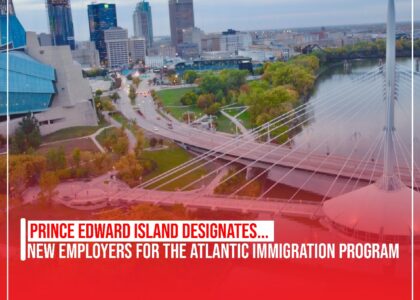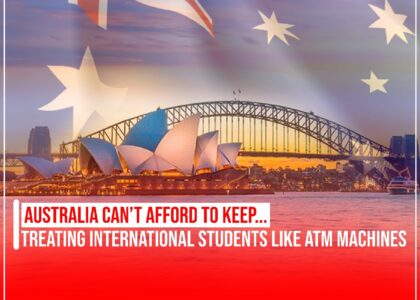New Zealand has long been recognized as a prime destination for those seeking picturesque landscapes, a thriving economy, and a stable political environment. However, the country’s “Golden Visa” program, known as the Active Investor Plus Visa, has faced challenges in attracting high-net-worth individuals in recent years. The government is now exploring significant reforms to breathe new life into the program and attract wealthy migrants who can contribute not just capital but also innovation and expertise to New Zealand’s economy.
In this article, we’ll dive into the potential changes to New Zealand’s Golden Visa program, its implications for investors, and how it could reshape the nation’s economic landscape.
What is New Zealand’s Active Investor Plus Visa (Golden Visa)?
The Active Investor Plus Visa program or Golden Visa allows wealthy migrants to obtain residency by making substantial investments in New Zealand. Historically, it brought in an average of NZ$1 billion annually, contributing significantly to the country’s economic growth. Applicants were required to invest in direct or passive investments, such as equity markets, but recent rule changes have led to a decline in participation.
According to Immigration New Zealand, only 35 applications were fully approved in the last two years, totaling just NZ$352 million in investment—a far cry from previous years. The decline has prompted the government to revisit the program and its policies to better appeal to high-net-worth individuals.
Also Read: DHS and DOL Release 64,716 Additional H-2B Visas for Fiscal Year 2025: Your Opportunity Awaits
The 2022 Changes: A Turning Point for Investor who wants to invest in the Golden Visa
In 2022, the government introduced stricter rules for the Active Investor Plus Visa or Golden Visa. These changes raised the minimum investment threshold and limited investment options, excluding traditional avenues like bonds and property.
Key 2022 changes included:
- Investment Thresholds:
- Direct investments required a minimum of NZ$5 million.
- Passive investments required a minimum of NZ$15 million.
- Exclusion of Bonds and Property:
Bonds and real estate—popular investment options in the past—were no longer considered eligible under the revised program.
These changes made the program less accessible and less attractive to potential investors, especially when compared to similar programs in other countries like Australia and Canada.
Proposed Reforms for 2024
The government’s center-right administration has recognized the shortcomings of the current visa program and announced its intention to make changes aimed at boosting participation. Here are some of the proposed reforms:
1. Faster Application Processing
To attract more investors, the government plans to expedite the overseas investment application process. Delays in processing have been a significant barrier for potential investors, and speeding up these processes will help streamline entry into New Zealand’s economy.
2. Emphasis on Foreign Capital
Finance Minister Nicola Willis emphasized that foreign investments are crucial for New Zealand to achieve its economic objectives. Beyond financial contributions, investor migrants bring valuable networks, expertise, and innovative ideas that can have a lasting impact on the local economy.
3. Revisiting the Property Buying Ban
One of the most contentious aspects of New Zealand’s immigration and investment policy is the 2018 ban on foreign property ownership, except for Australians and Singaporeans.
- The government is now exploring options to ease this restriction. One proposal includes allowing foreigners to purchase homes valued at NZ$2 million or more, provided they also make significant investments in the country.
- Winston Peters, leader of the New Zealand First Party, has shown interest in lifting the ban for high-value property purchases. If implemented, this change could entice more wealthy individuals to invest in New Zealand.
4. Reviewing the English-Language Test
While specific details are still under wraps, the government may consider removing or relaxing the English-language test requirement. This would make the program more accessible to investors from non-English-speaking countries, broadening the pool of eligible applicants.
Why Attract Wealthy Migrants?
The government’s renewed focus on attracting wealthy migrants is part of a broader strategy to bolster the nation’s economy. High-net-worth individuals contribute more than just financial capital; they bring:
- Expertise and Innovation: Successful investors often have extensive business acumen and networks that can benefit local industries.
- Job Creation: Migrant investors often establish businesses or support startups, creating employment opportunities for locals.
- Economic Diversification: Investments in various sectors, such as technology, renewable energy, and infrastructure, can help New Zealand diversify its economy and reduce reliance on traditional industries like agriculture and tourism.
As Finance Minister Nicola Willis noted, “Investor migrants bring much more than just money. It’s also the networks, the expertise, the experience, the ideas that they bring with them.”
Global Competition for Wealthy Migrants
New Zealand is not the only country competing for high-net-worth individuals. Many nations have introduced similar “Golden Visa” programs to attract foreign capital. For example:
- Australia: Offers its Significant Investor Visa, which requires AUD 5 million in investments but allows investments in property and venture capital.
- Canada: Provincial Nominee Programs (PNPs) offer pathways to residency for investors with lower financial thresholds.
- Portugal and Spain: Popular for their real estate-focused Golden Visa programs, which allow investments in property for residency.
To remain competitive, New Zealand needs to position itself as an attractive destination for investment and lifestyle. Proposed reforms could give New Zealand an edge in this global race.
Criticism and Challenges
While the proposed changes are aimed at reviving the Active Investor Plus Visa, there are challenges and criticisms to consider:
- Perceived Inequality: Critics argue that Golden Visa programs favor the wealthy and exacerbate inequality, as they create a separate pathway for high-net-worth individuals that is inaccessible to the average migrant.
- Housing Affordability Concerns: Lifting the property buying ban for foreigners could potentially drive up property prices, making it harder for New Zealand residents to afford homes.
- Balancing Economic Goals and Social Impact: The government must carefully balance the need for foreign capital with the potential social and economic implications of these changes.
What’s Next for the Active Investor Plus Visa?
The government is expected to announce detailed reforms to the Active Investor Plus Visa in the coming weeks. These changes could include adjustments to investment thresholds, a relaxation of the property ban, and a review of the English-language test requirement.
By addressing the shortcomings of the 2022 rule changes, New Zealand aims to position itself as a top destination for wealthy migrants looking to invest in a stable and prosperous economy.
Is New Zealand Right for You?
For investors looking for a safe and thriving environment to grow their wealth, New Zealand offers unparalleled opportunities. With its scenic beauty, high quality of life, and a government eager to welcome foreign capital, New Zealand remains a top choice for high-net-worth individuals.
If you’re considering the Active Investor Plus Visa or exploring other immigration pathways, our team at Mansory Immigration Consultant is here to help. Contact us today to learn more about how we can assist you in making New Zealand your new home.
Ready to Invest in Your Future?
At Mansory Immigration Consultant, we specialize in helping high-net-worth individuals navigate the complexities of immigration and investment. Let us help you take advantage of New Zealand’s Golden Visa program and start your journey to permanent residency today! Fill out our free assessment form to get started.





